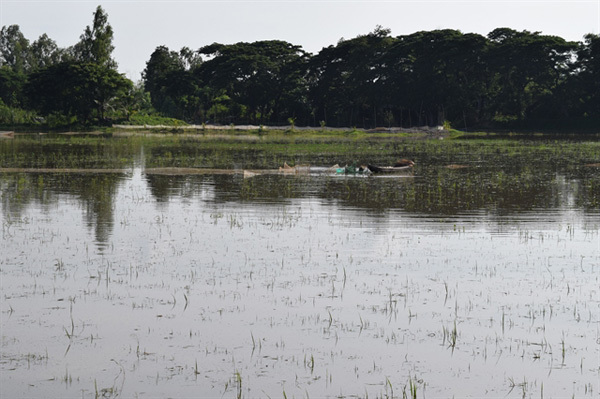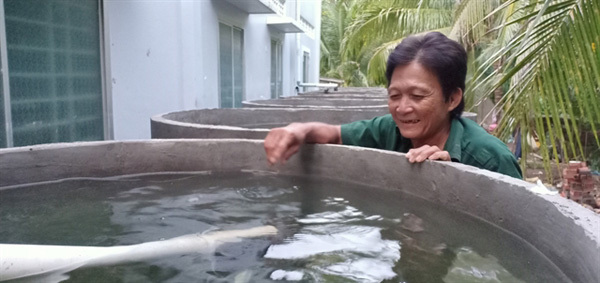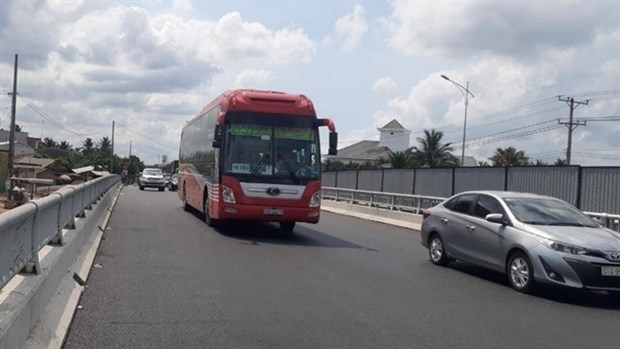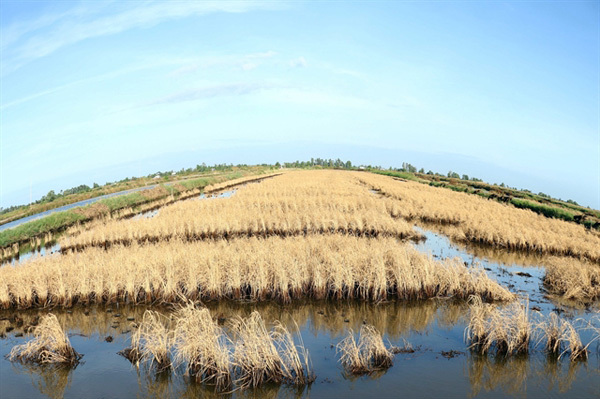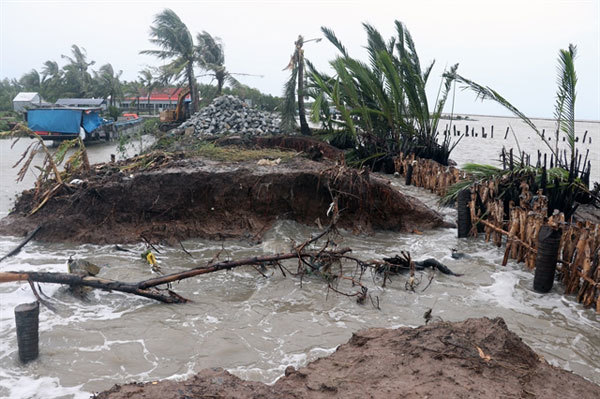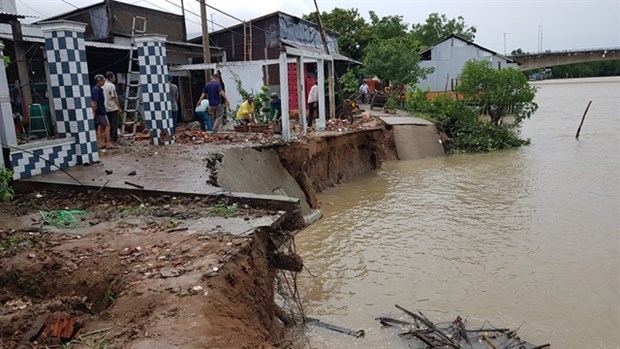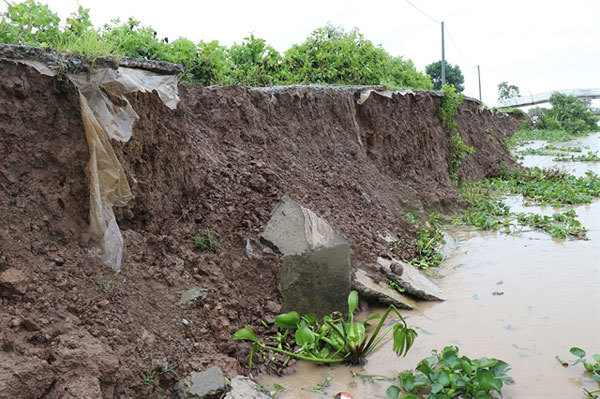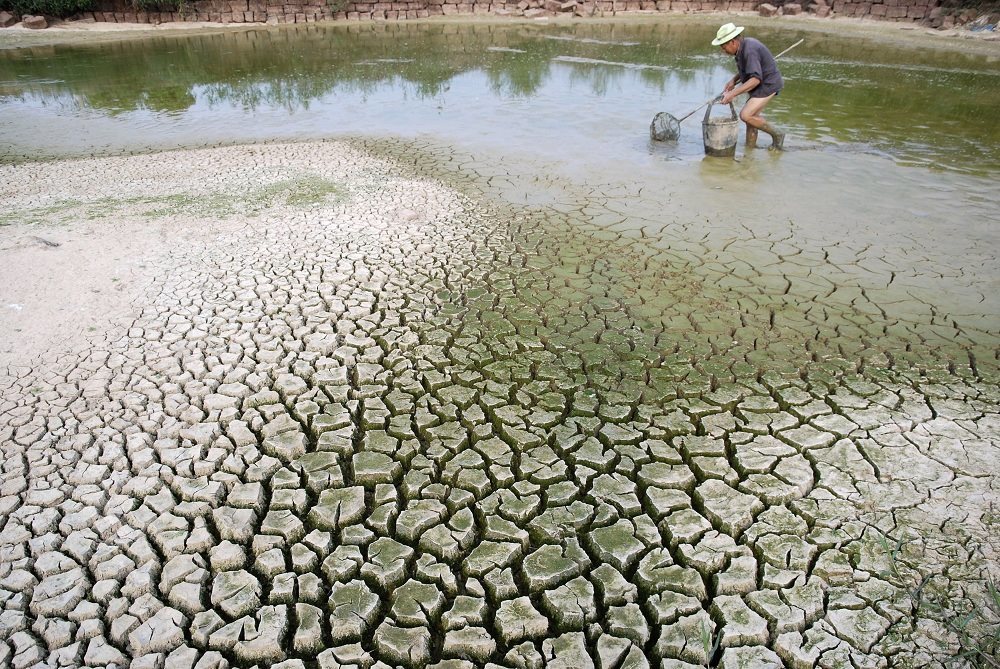- © Copyright of Vietnamnet Global.
- Tel: 024 3772 7988 Fax: (024) 37722734
- Email: [email protected]
mekong delta
Update news mekong delta
Major transport projects in Mekong Delta to be completed before Tet
Contractors and workers expect to complete construction of several major transport projects in the Cuu Long (Mekong) Delta before Tet (Lunar New Year Festival), which falls on February 12 next year.
Strange things in Mekong Delta: ‘monster’ fish, red bamboo and purple guava
Nam Can crab in Ca Mau province is famous for its high quality and delicious taste, while thoi loi fish is a wonderful dish for parties. These are among the many precious specialties available in the Mekong Delta region.
Mekong Delta to release floodwaters into rice fields to fertilise soil, destroy pests
Farmers in Dong Thap Province’s Hong Ngu District will not grow the autumn-winter rice crop, the year’s third, on more than 9,000ha and will instead release floodwaters into their fields to fertilise the soil and destroy pathogens and pests.
Farmers in Mekong Delta attend floating English class
There is a special class on Son Islet in the Mekong Delta province of Can Tho’s Binh Thuy District, which all farmers from the local area can attend to learn English for free on Tuesday and Thursday afternoon.
Mekong Delta district lacks clean water for household use
About 5,600 households in Kien Giang Province’s An Bien District lack access to clean water and have to harvest rainwater or buy clean water from other areas, according to the district’s People’s Committee.
Flood season coming late, drought may hit Mekong Delta again next year
This year’s flood season in the Mekong Delta is likely to arrive late and if there is insufficient rain in the months to come, drought and saltwater intrusion may plague the region again during the next dry season, experts have warned.
Western sea dyke needs urgent protection
Many sections of the western sea dyke in Ca Mau and Kien Giang provinces in the Mekong Delta have seriously eroded and could collapse at any time if prompt protective measures are not taken.
Ben Tre province repairs eroded riverbank section
The Mekong Delta province of Ben Tre is restoring a section along the banks of Ba Lai river that eroded when a temporary dam was removed along the banks.
Ministry invests in repair of highways in Mekong Delta
The Ministry of Transport said it has invested 800 billion VND (34.5 million USD) for repairs and upgrades to national highways in the Mekong Delta this year to ensure traffic safety.
Mekong Delta must be protected from natural disasters
 Nguyen Van Dao, from the General Department of Meteorology and Hydrology talks to on the need to have a full and accurate report on saltwater intrusion and the hydrometeorology system in the Mekong Delta.
Nguyen Van Dao, from the General Department of Meteorology and Hydrology talks to on the need to have a full and accurate report on saltwater intrusion and the hydrometeorology system in the Mekong Delta.
Mekong Delta begins relief work after being battered by heavy rains, winds
 Authorities in the Mekong Delta are mobilising personnel and funds to provide relief and rehabilitation after houses, crops and dykes were damaged by the impact of tropical storm Sinlaku in the last few days.
Authorities in the Mekong Delta are mobilising personnel and funds to provide relief and rehabilitation after houses, crops and dykes were damaged by the impact of tropical storm Sinlaku in the last few days.
With more coal-fired thermopower plants, Mekong Delta faces higher risks
 Many Mekong Delta provinces, including Bac Lieu, Long An and Tien Giang, are saying 'no’ to coal-fired thermopower plants.
Many Mekong Delta provinces, including Bac Lieu, Long An and Tien Giang, are saying 'no’ to coal-fired thermopower plants.
Two die as storm Sinlaku sweeps through northern Vietnam
Storm Sinlaku, the second of its kind to enter the East Sea since the beginning of this year, has caused two deaths, according to reports from the provinces at a meeting in Hanoi on August 3.
Mekong Delta faces increasing erosion along rivers, canals
The beginning of the rainy season has increased land erosion along rivers and canals in the Mekong Delta.
How can Hanoi prepare for heavy rains and floods?
 If it rains heavily and flooding is intense, it is highly possible that dykes will break, experts say.
If it rains heavily and flooding is intense, it is highly possible that dykes will break, experts say.
Drought in Mekong Delta worsens due to hydropower, water diversion
 Since countries in the upper course of the Mekong River have diverted water, problems related to drought, saline intrusion and landslides in Mekong Delta have become worse.
Since countries in the upper course of the Mekong River have diverted water, problems related to drought, saline intrusion and landslides in Mekong Delta have become worse.
Desertification and Drought Day highlights concerns about loss of land
 The theme of the 2020 Desertification and Drought Day of Vietnam is ‘consumption and land’, which emphasises solutions and models that help mitigate drought.
The theme of the 2020 Desertification and Drought Day of Vietnam is ‘consumption and land’, which emphasises solutions and models that help mitigate drought.
Giant crocodile-shaped bread excites local diners
Batches of crocodile-shaped bread weighing a hefty 1.5kg with a length of 60cm are being sold at a store in the Mekong Delta province of An Giang, provoking a buzz on social media in recent days.
WB grants US$422 mln to higher education, urban development projects in Vietnam
The World Bank Board of Executive Directors on June 30 approved financing for two projects worth a total of US$422 million to help build a climate-resilient city in the Mekong Delta and improve the quality of Vietnam’s three national universities.
Vietnam ugogrades meteorological forecasting technology
 Vietnam has the opportunity to upgrade forecasting technology, improve forecasters’ roles, and heighten people’s awareness about the impact of natural disasters.
Vietnam has the opportunity to upgrade forecasting technology, improve forecasters’ roles, and heighten people’s awareness about the impact of natural disasters.


